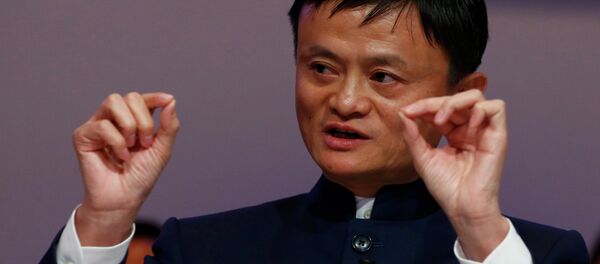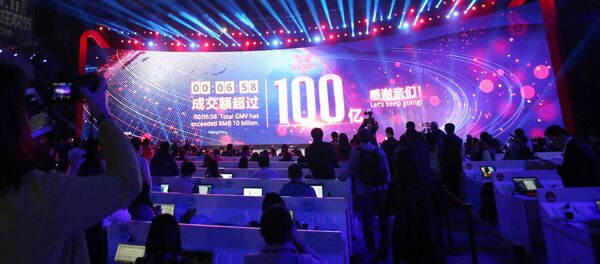The authors compared China’s intensely growing digital marketplace with Times Square, as one of the busiest and most lively places in the world.
According to the report, China has now more e-commerce activity than any other country in the world. Data from the Chinese National Bureau of Statistics reveal that in 2016 Chinese consumers spent $750 billion online, more than in the United States and in the United Kingdom combined.
E-commerce emerged in the US in the 1990s and Western customers had to break away from their old habits, switching to the digital marketplace. By contrast, physical retail was less developed in China at the time and Chinese customers simply skipped this transition period, quickly finding themselves accustomed to online shopping.
"As a result, e-commerce quickly became the norm, and its development was fast-tracked to the point where China pulled ahead of the West," the report read.
The same situation is characteristic for shopping via smartphones and other mobile devices.
The authors estimated that by 2020, online purchases made with mobile phones would reach 74 percent of e-commerce in China, against just 46 percent in the US market.
Moreover, the pace of e-commerce does not show a sign of slowing down. The industry is expected to grow by 20 percent a year in China in the next five years, which is two times faster than that of in the US and the UK.
The authors highlighted the main advantages of China’s e-commerce market, differentiating it from Western digital marketplaces.
Among them are sophisticated Chinese shoppers, massive volumes of transactions and rapid rates of innovation and integration of social media, multimedia and other channels.
All of the above, according to estimates, will further drive up online shopping in China, at a much faster pace than in the West.
Analyzing the market’s dynamics and consumer behavior both in China and in the West, the authors of the report concluded that in the future all online retailers will have to tackle almost the same set of issues, in order to keep profitable growth.
According to the authors, such a model should deliver a "seamless and compelling customer experience, and increases efficiency in inventory management, product selection, and logistics."
"In this new world, the distinction between online and offline commerce disappears, and the way the consumer thinks and behaves across all channels determines the way the merchant runs its business. Players focus on engaging the customer through personalized content. And they develop capabilities across marketing, innovation, and logistics to adapt to ever-evolving customer needs. Alibaba calls this 'new retail,'" the report concluded.
Never miss a story again — sign up to our Telegram channel and we'll keep you up to speed!





